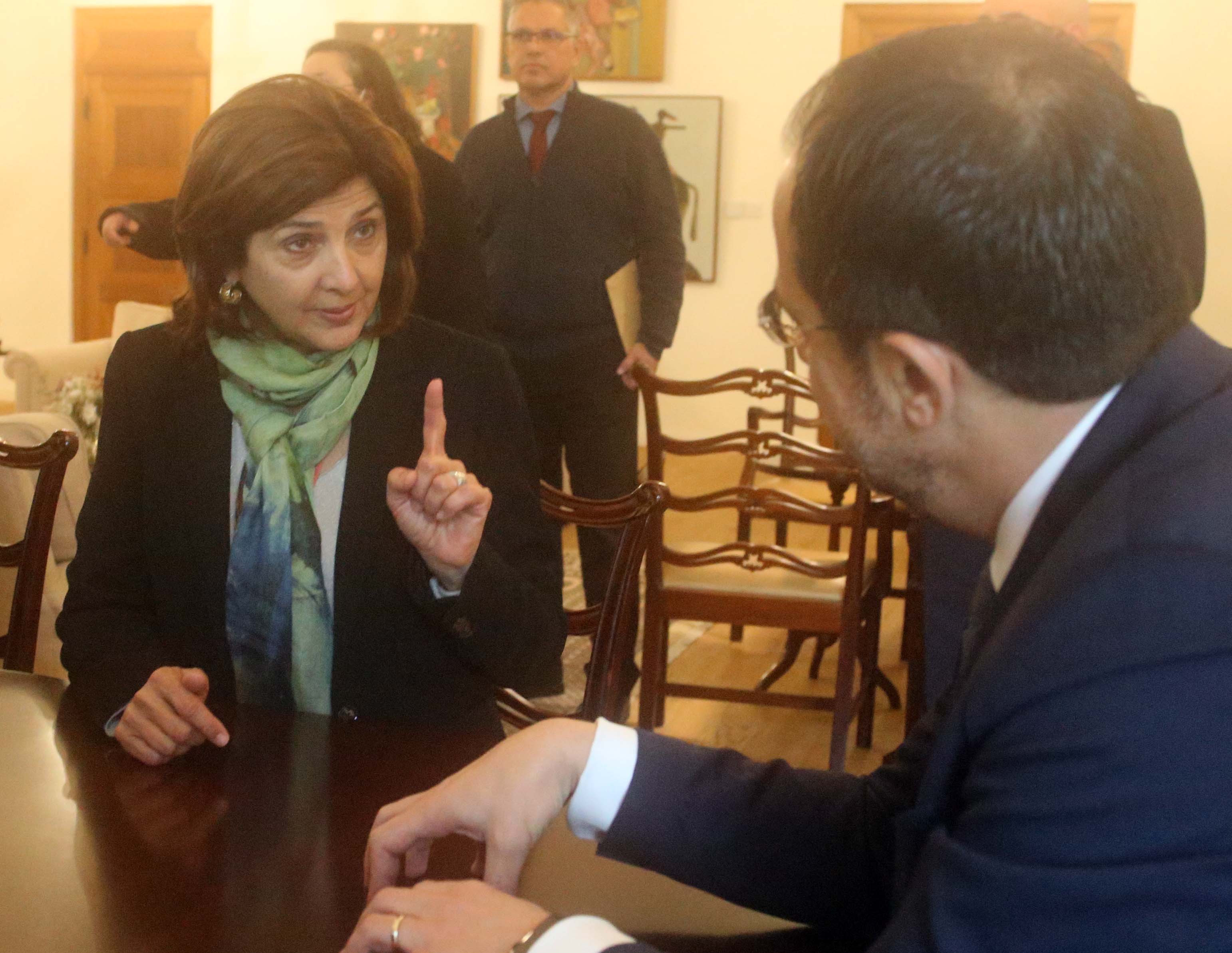Poor Maria Angela Holguin has once again been dragged into the political minefield that is Cyprus, reappointed as the UN secretary-general’s (UNSG) personal envoy. There was hesitation in announcing her as envoy at the five-party meeting in Geneva back in March, so it must have taken considerable effort since then to persuade her to take on this historically doomed role. Cyprus is, after all, known as the graveyard of diplomats.
And who could blame her if she was reluctant? Just six months ago, she reported back to the UNSG that, after extensive consultations, there was no common ground between the Greek Cypriot and Turkish Cypriot sides on which to base negotiations. Now, she’s expected to “re-engage with the parties in order to work on the next steps on the Cyprus issue and to advise them”. In plain English, that sounds suspiciously like “just look busy”.
How did we end up here? Call me a cynic, but it all feels like a re-enactment of Hans Christian Andersen’s The Emperor’s New Clothes where everyone sees the king’s naked truth, but no one dares say it aloud.
How?
The UN secretary-general had long been sceptical about re-starting the Cyprus talks, and understandably so. He has far more urgent humanitarian issues to deal with elsewhere in the world, like warzones in Palestine, the Central African Republic, the Democratic Republic of Congo, and South Sudan. In comparison, Cyprus, where peace has prevailed for half a century and where people from both sides trade, shop and socialise with each other hardly seems a top priority for the UN.
However, following intense Greek Cypriot lobbying through the European Union for the resumption of talks, it seems the UNSG concluded that the UN appearing to do something is better than appearing to do nothing, even if that something achieves nothing.
This kind of international “visibility” suits everyone involved: the Greek and Turkish Cypriot leaderships and their respective backers Greece, Turkey and the UK. We saw this performance play out in Geneva, where an unspoken collusion between the UNSG and the five parties was almost palpable.
The secretary-general had clearly agreed with participants beforehand that they could discuss anything they liked, as long as it wasn’t the Cyprus problem. That would risk derailing the whole charade. So they stuck to discussing good intentions around peripheral matters like youth groups and border crossings. The meeting concluded without any new agreements, yet the participants emerged smiling, expressing satisfaction much like in The Emperor’s New Clothes. Nobody dared state the obvious that this was a complete waste of time. Everyone returned home ready to spin the meeting and its outcomes in whatever way best suited their own audience. And that’s exactly what happened. It was a win-win for all, except the people of Cyprus.
What everyone is avoiding is a serious and honest discussion about potential solutions to the Cyprus problem in terms of governance. Sadly, all key exponents of these solutions are playing with words to mask their deep and unresolved differences:
· The ruling Turkish Cypriot centre right advocates a two-state solution, but it surely cannot be unaware of the fact that in the absence of any states which would be willing to recognise the Turkish Cypriot entity, this is, at least in the short to medium term, an unrealistic expectation.
· The Greek Cypriot side argues vehemently that the solution must be a bizonal, bicommunal federation in line with UN resolutions. However, it then immediately contradicts this by adding that EU “freedoms” such as movement (and settlement) of people, goods, services and capital must apply, thus undermining the essential condition of bizonality. As I explained in a previous article unless there are formal and sustained derogations to limit actions that nullify bizonality, what they’re describing is more of a unitary state than a federation. A unitary state is clearly unacceptable to Turkish Cypriots across the political spectrum, and as such, this also becomes an unrealistic option.
· The Turkish Cypriot centre left does agree with a bizonal, bicommunal approach (with appropriate derogations to ensure bizonality). However, it proposes that any agreed process must exclude the status quo as an outcome. If no agreement is reached due to Greek Cypriot intransigence, they argue, the Greek Cypriot side should forfeit their claim to the Republic of Cyprus and a two-state solution should be triggered as a backstop. But why would Greek Cypriots agree to such a high-risk scenario when they don’t have to? And how would such a drastic enforcement mechanism ever be implemented through the UN? This, too, is an unrealistic proposal.
If the two sides want to agree a way forward, they need to move their thinking on from perfect fantasy, to imperfect reality. Or is it the case, perhaps, that both sides are playing mind games with their respective publics, when what they really want is to remain exactly as they are now?
Colin Stewart, Unficyp chief, in a recent speech said: “The start of negotiations is the mountain, and we are now taking steps towards the mountain, but we are not there yet.” He also commented that “there are reasons to not despair.” These remarks paint a bleak picture for the new envoy.
In my view, Maria Angela Holguin is the only UN envoy who was able to put a finger on the nub of the Cyprus problem, but she does have a mountain to climb. I wish her well in her mission to help the people of Cyprus and I hope the two sides will cooperate with her.






Click here to change your cookie preferences